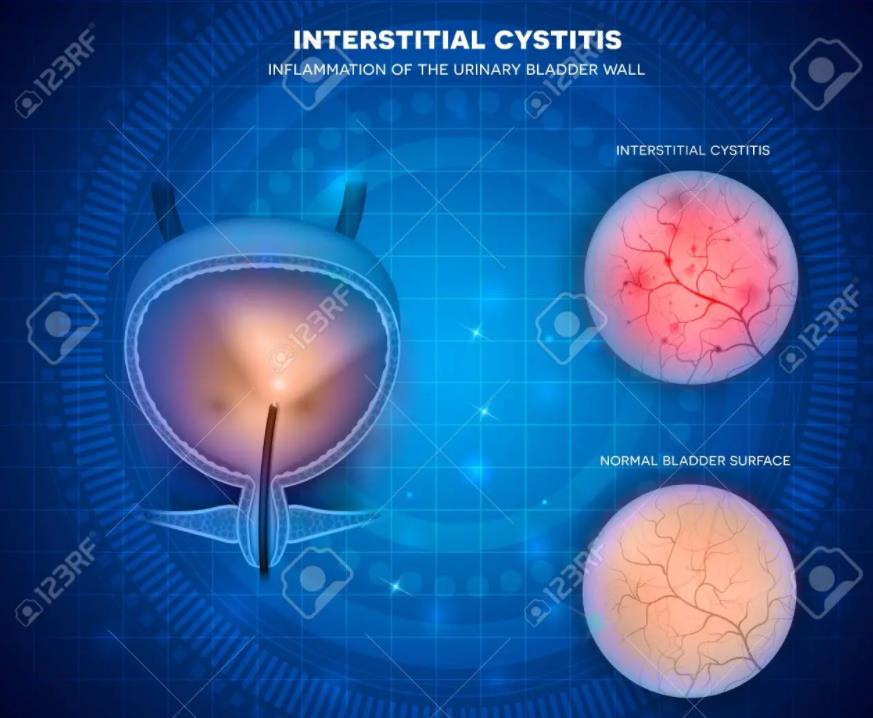Interstitial Cystitis
Overview
What is Interstitial Cystitis
Interstitial cystitis (IC) is a chronic inflammation of the bladder that causes pain and discomfort. Symptoms can include a sense of urgency and increased frequency of urination. Inflammation associated with IC causes the lining of the bladder to scar and the bladder to stiffen, affecting the way the bladder expands when it fills with urine.

Symptoms
Symptoms of interstitial cystitis vary from individual to individual. Some people may have only a mild sense of urgency while others have multiple symptoms. Any of the following symptoms could indicate the presence of interstitial cystitis:
- Pain ranging from mild to intense in the bladder and surrounding pelvic region and perineum – the area between the anus and vagina in women and the anus and scrotum in men.
- Urgent need to urinate, even if only small amounts of urine are present.
- Frequent need to urinate.
Causes
No one really knows what causes interstitial cystitis and because it varies from person to person, specialists believe there may be multiple causes such as:
- A defect in the lining of the bladder, which allows harmful substances found in urine to come into contact with the bladder wall.
- Changes in nerves inside the bladder.
- An overproduction of histamine or other potentially harmful chemicals by mast cells (a special type of cell that is involved in allergic reactions).
- An autoimmune response, whereby the body attacks its own organs and tissue.
Diagnosis
There is no one test that is specific for interstitial cystitis. Because other conditions can cause the same symptoms, a diagnosis is made only after other possible causes are ruled out. Other conditions that can cause the same symptoms include:
- bladder cancer
- chronic prostatitis in men
- endometriosis
- kidney stones
- sexually transmitted infection
- urinary tract infection
- vaginal infection
Treatment
Because there is no cure for interstitial cystitis, the goal of treatment is to relieve symptoms. Not everyone with IC responds the same way to the same treatment. What works for one person may not work for another. In addition, IC treatments generally take several weeks to several months to provide relief. When you discuss your treatment options, your doctor will help you decide which one might work best for you. Treatment options include:
- Bladder distension. Some patients report feeling better after the bladder distension used during diagnosis. Symptoms often worsen within the first two days after distension. However, they return to pre-distension levels or improve within two to four weeks. It isn’t clear why distension causes symptom relief in some people. It may be that distension increases the capacity of the bladder, or it may be that it interrupts the pain signals.
